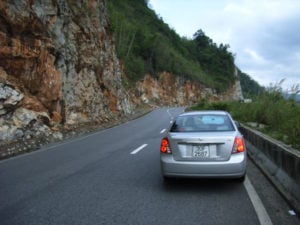
DUI Stop
Guess what? If you’re on the road after 10p, the average cop or trooper thinks you’re probably drunk. That means that he’s going to look for any possible reason, real or otherwise, to pull you over.
That’s why every DUI we analyze starts with the question of whether the cop had a good reason (a reasonable suspicion that you broke a law) to stop you. If he didn’t, then the prosecutor is going to have real problems with the case against you. What reason did the cop give for stopping you? Judges generally give a lot of deference to cops who claim that a driver has broken the law. There are, however, limits.
In Washington v. Prado, the court engaged in the first higher court analysis of RCW 46.61.140(1), which governs lane travel and whether you absolutely have to remain within your lane unless you’re trying to move out of your lane. The Court held that a single lane deviation, for one second, by two tire widths did not violate RCW 46.61.140(1)’s directive that a vehicle “be driven as nearly as practicable entirely within a single lane”.
The Court noted that “We believe the legislature’s use of the language ‘as nearly as practicable’ demonstrates a recognition that brief incursions over lane lines will happen.” State v. Prado, 145 Wn.App. 646, 649 (2008).
If you are charged with DUI, review discovery with your attorney and ask whether or not you were pulled over because of a brief lane incursion. If you were, your criminal attorney can help you. Call Durflinger Oliver & Associates PStoday for a free consultation, and ask about military discounts, and easy payment plans.
